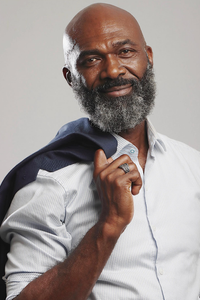James Joseph
James Joseph (Democratic Party) is running for election to the Texas House of Representatives to represent District 142. He is on the ballot in the Democratic primary on March 3, 2026.[source]
Joseph completed Ballotpedia's Candidate Connection survey in 2026. Click here to read the survey answers.
Biography
James Joseph was born in Houston, Texas. He earned a high school diploma from Ross Shaw Sterling High School and a bachelor's degree in public affairs with a minor in business administration from the Barbara Jordan-Mickey Leland School of Public Affairs at Texas Southern University in 2019. Joseph earned a diesel mechanic certification from Houston Community College and completed the Rice University Center for Civic Leadership training program.[1][2]
Joseph's career experience includes working as a business consultant and as CEO with Neighborhood Enrichment Xchange. He has served as president of the Blocks Organizing Neighborhood Defense and Super Neighborhood #55, and as vice president of Legacy Health's community advisory committee. Joseph has been a member of the Blue Ribbon Committee with Houston Community College Northeast, and has been associated with the National Society of Leadership & Success, the American Planning Association, the Lyons Unity MBC Fundraising Committee, Local Transportation Union 260, and the Most Worshipful Prince Hall Grand Lodge of Texas Library Committee.[1][3]
Elections
2026
See also: Texas House of Representatives elections, 2026
General election
The primary will occur on March 3, 2026. The general election will occur on November 3, 2026. General election candidates will be added here following the primary.
The candidate list in this election may not be complete.
Democratic primary
The candidate list in this election may not be complete.
Democratic primary for Texas House of Representatives District 142
Incumbent Harold Dutton Jr. (D), James Joseph (D), and Danyahel Norris (D) are running in the Democratic primary for Texas House of Representatives District 142 on March 3, 2026.
Candidate | ||
 | Harold Dutton Jr. | |
 | James Joseph  | |
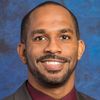 | Danyahel Norris | |
 = candidate completed the Ballotpedia Candidate Connection survey. = candidate completed the Ballotpedia Candidate Connection survey. | ||||
| If you are a candidate and would like to tell readers and voters more about why they should vote for you, complete the Ballotpedia Candidate Connection Survey. | ||||
Do you want a spreadsheet of this type of data? Contact our sales team. | ||||
Republican primary
The candidate list in this election may not be complete.
Republican primary for Texas House of Representatives District 142
Heidi Hall (R) is running in the Republican primary for Texas House of Representatives District 142 on March 3, 2026.
Candidate | ||
| Heidi Hall | ||
 = candidate completed the Ballotpedia Candidate Connection survey. = candidate completed the Ballotpedia Candidate Connection survey. | ||||
| If you are a candidate and would like to tell readers and voters more about why they should vote for you, complete the Ballotpedia Candidate Connection Survey. | ||||
Do you want a spreadsheet of this type of data? Contact our sales team. | ||||
Endorsements
Ballotpedia is gathering information about candidate endorsements. To send us an endorsement, click here.
2025
See also: Texas' 18th Congressional District special election, 2025
General runoff election
Special general runoff election for U.S. House Texas District 18
Christian Menefee defeated Amanda Edwards in the special general runoff election for U.S. House Texas District 18 on January 31, 2026.
Candidate | % | Votes | ||
| ✔ |  | Christian Menefee (D)  | 67.5 | 11,630 |
 | Amanda Edwards (D) | 32.5 | 5,602 | |
| Total votes: 17,232 | ||||
 = candidate completed the Ballotpedia Candidate Connection survey. = candidate completed the Ballotpedia Candidate Connection survey. | ||||
| If you are a candidate and would like to tell readers and voters more about why they should vote for you, complete the Ballotpedia Candidate Connection Survey. | ||||
Do you want a spreadsheet of this type of data? Contact our sales team. | ||||
General election
Special general election for U.S. House Texas District 18
The following candidates ran in the special general election for U.S. House Texas District 18 on November 4, 2025.
Candidate | % | Votes | ||
| ✔ |  | Christian Menefee (D)  | 28.9 | 22,022 |
| ✔ |  | Amanda Edwards (D) | 25.6 | 19,467 |
 | Jolanda Jones (D) | 19.1 | 14,549 | |
 | Carmen Montiel (R)  | 6.7 | 5,110 | |
 | Isaiah Martin (D) | 5.7 | 4,337 | |
| Ollie Knox (R) | 4.1 | 3,131 | ||
 | Stephen Huey (D)  | 1.9 | 1,415 | |
| Ronald Whitfield (R) | 1.5 | 1,175 | ||
 | Carter Page (R) | 1.2 | 943 | |
 | Theodis Daniel (R) | 1.2 | 937 | |
 | Valencia Williams (D) | 1.2 | 915 | |
| George Foreman (Independent) | 1.1 | 828 | ||
| Feldon Bonner II (D) | 0.7 | 555 | ||
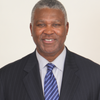 | Vince Duncan (Independent) | 0.5 | 407 | |
| Reyna Anderson (Independent) | 0.3 | 263 | ||
Tammie Rochester (G)  | 0.2 | 135 | ||
| Total votes: 76,189 | ||||
 = candidate completed the Ballotpedia Candidate Connection survey. = candidate completed the Ballotpedia Candidate Connection survey. | ||||
| If you are a candidate and would like to tell readers and voters more about why they should vote for you, complete the Ballotpedia Candidate Connection Survey. | ||||
Do you want a spreadsheet of this type of data? Contact our sales team. | ||||
Withdrawn or disqualified candidates
- Lizette Prestwich (D)
- Jarvis Johnson (D)
- Derrell Turner (Independent)
- Khris Beal (Independent)
- James Joseph (D)
- Zoe Cadore (D)
- Kivan Polimis (D)
- Chance Davis (Independent)
- Corisha Rogers (D)
- Selena Samuel (D)
- Robert Slater (D)
- Ebony Eatmon (D)
- Peter Filler (D)
- T.J. Baker (D)
- Tejas Tuppera (Independent)
- Laverne Crump (D)
- Barry Dewayne Marchant (D)
Endorsements
Ballotpedia did not identify endorsements for Joseph in this election.
2023
See also: City elections in Houston, Texas (2023)
General runoff election
General runoff election for Houston City Council At-large Position 3
Twila Carter defeated Richard Cantu in the general runoff election for Houston City Council At-large Position 3 on December 9, 2023.
Candidate | % | Votes | ||
| ✔ | 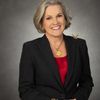 | Twila Carter (Nonpartisan) | 51.0 | 88,570 |
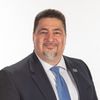 | Richard Cantu (Nonpartisan)  | 49.0 | 85,012 | |
| Total votes: 173,582 | ||||
 = candidate completed the Ballotpedia Candidate Connection survey. = candidate completed the Ballotpedia Candidate Connection survey. | ||||
| If you are a candidate and would like to tell readers and voters more about why they should vote for you, complete the Ballotpedia Candidate Connection Survey. | ||||
Do you want a spreadsheet of this type of data? Contact our sales team. | ||||
General election
General election for Houston City Council At-large Position 3
The following candidates ran in the general election for Houston City Council At-large Position 3 on November 7, 2023.
Candidate | % | Votes | ||
| ✔ |  | Richard Cantu (Nonpartisan)  | 21.9 | 43,514 |
| ✔ |  | Twila Carter (Nonpartisan) | 20.6 | 40,964 |
 | Donnell Cooper (Nonpartisan)  | 13.4 | 26,683 | |
 | Ericka McCrutcheon (Nonpartisan) | 13.1 | 26,094 | |
 | Richard Nguyen (Nonpartisan) | 10.1 | 20,012 | |
| Casey Curry (Nonpartisan) | 9.0 | 17,868 | ||
 | James Joseph (Nonpartisan) | 6.5 | 12,839 | |
 | Ethan Michelle Ganz (Nonpartisan)  | 3.2 | 6,324 | |
| Bernard Amadi (Nonpartisan) | 2.1 | 4,230 | ||
| Total votes: 198,528 | ||||
 = candidate completed the Ballotpedia Candidate Connection survey. = candidate completed the Ballotpedia Candidate Connection survey. | ||||
| If you are a candidate and would like to tell readers and voters more about why they should vote for you, complete the Ballotpedia Candidate Connection Survey. | ||||
Do you want a spreadsheet of this type of data? Contact our sales team. | ||||
Endorsements
Ballotpedia did not identify endorsements for Joseph in this election.
2019
See also: City elections in Houston, Texas (2019)
General runoff election
General runoff election for Houston City Council At-large Position 4
Letitia Plummer defeated Anthony Dolcefino in the general runoff election for Houston City Council At-large Position 4 on December 14, 2019.
Candidate | % | Votes | ||
| ✔ |  | Letitia Plummer (Nonpartisan) | 51.8 | 88,522 |
 | Anthony Dolcefino (Nonpartisan)  | 48.2 | 82,222 | |
| Total votes: 170,744 | ||||
 = candidate completed the Ballotpedia Candidate Connection survey. = candidate completed the Ballotpedia Candidate Connection survey. | ||||
| If you are a candidate and would like to tell readers and voters more about why they should vote for you, complete the Ballotpedia Candidate Connection Survey. | ||||
Do you want a spreadsheet of this type of data? Contact our sales team. | ||||
General election
General election for Houston City Council At-large Position 4
The following candidates ran in the general election for Houston City Council At-large Position 4 on November 5, 2019.
Candidate | % | Votes | ||
| ✔ |  | Anthony Dolcefino (Nonpartisan)  | 20.9 | 39,627 |
| ✔ |  | Letitia Plummer (Nonpartisan) | 15.9 | 30,223 |
 | Nick Hellyar (Nonpartisan)  | 12.7 | 24,068 | |
 | Ericka McCrutcheon (Nonpartisan) | 11.2 | 21,195 | |
Bill Baldwin (Nonpartisan)  | 10.7 | 20,276 | ||
| Javier Gonzalez (Nonpartisan) | 8.4 | 15,912 | ||
| Jennifer Laney (Nonpartisan) | 6.1 | 11,589 | ||
 | James Joseph (Nonpartisan)  | 5.8 | 11,054 | |
 | Jason Rowe (Nonpartisan)  | 3.3 | 6,347 | |
| Christel Bastida (Nonpartisan) | 2.6 | 5,017 | ||
| Tiko Hausman (Nonpartisan) | 2.3 | 4,288 | ||
| Total votes: 189,596 | ||||
 = candidate completed the Ballotpedia Candidate Connection survey. = candidate completed the Ballotpedia Candidate Connection survey. | ||||
| If you are a candidate and would like to tell readers and voters more about why they should vote for you, complete the Ballotpedia Candidate Connection Survey. | ||||
Do you want a spreadsheet of this type of data? Contact our sales team. | ||||
Endorsements
To see a list of endorsements for James Joseph, click here.
Campaign themes
2026
Ballotpedia survey responses
See also: Ballotpedia's Candidate Connection
has not yet completed Ballotpedia's Candidate Connection survey.
Who fills out Ballotpedia's Candidate Connection survey?
Any candidate running for elected office, at any level, can complete Ballotpedia's Candidate Survey. Completing the survey will update the candidate's Ballotpedia profile, letting voters know who they are and what they stand for. More than candidates have taken Ballotpedia's candidate survey since we launched it in 2015. Learn more about the survey here.
Help improve Ballotpedia - send us candidate contact info.
2025
James Joseph completed Ballotpedia's Candidate Connection survey in 2025. The survey questions appear in bold and are followed by Joseph's responses.
| Collapse all
- 1. A Champion for the People — Rooted in Community, Committed to Service I was raised with a deep respect for service, shaped by humble beginnings and a lifelong dedication to community. I understand the struggles of working families, and I’m running to be a voice for everyday people — not corporations or special interests. I’ve spent my life helping others, and I’m bringing that same heart for service to Congress.
- 2. Fighting for Economic Justice, Healthcare, and Education Every family in our district deserves a fair shot — access to quality healthcare, strong public schools, affordable housing, and jobs that pay a living wage. I will fight to protect Medicare and Social Security, cancel medical debt, expand educational opportunities, and make sure our communities aren’t left behind in the new economy.
- 3. A Proven Leader Who Shows Up and Listens I’m not just another politician — I show up. Whether it’s town halls, church services, or food drives, I’ve been working side-by-side with the people of this district for years. I’m committed to transparency, accountability, and bringing real solutions back home. You can count on me to fight for you, because I’ve been with you all along.
⸻
1. Economic Equity and Job Creation
I believe in building an economy that works for everyone, not just the wealthy. That means raising the minimum wage, expanding job training programs, supporting small businesses, and investing in infrastructure to bring good-paying, union jobs to our community. I want every family in the 18th District to thrive — not just survive.
⸻
2. Healthcare Access and Affordability
1. The 48 Laws of Power by Robert Greene
This book offers a sharp lens on how power works — how it’s gained, used, and misused. While I don’t embrace all of its tactics, I believe understanding power is essential for anyone who wants to challenge systems of inequality and advocate for those without a voice. It’s not about manipulation — it’s about navigating the realities of leadership with clarity and purpose.
2. Hamilton the Musical (by Lin-Manuel Miranda)
The people deserve leaders who tell the truth, keep their word, and do what’s right — even when it’s not politically convenient. Integrity means standing firm on your values and being accountable to the people, not to lobbyists or big donors.
⸻
2. Accountability and Transparency
Elected officials work for the people. That means being accessible, listening to concerns, reporting back on decisions, and welcoming community input. I believe in open town halls, transparent policy decisions, and regular communication with constituents.
⸻
3. Compassion and Service
A good leader must care deeply about others — especially the most vulnerable. Public service isn’t about power or prestige; it’s about making life better for the people you represent. That requires humility, empathy, and a true heart for the community.
⸻
4. Courage and Conviction
Whether it’s fighting for working families or standing up to injustice, leaders must have the courage to speak truth to power and push for meaningful change — even when it’s hard. I believe in being bold when people’s lives and rights are on the line.
⸻
5. Vision and Leadership
The most fundamental duty is to be the voice of the people in the district — to listen, engage, and advocate for their needs and values in Washington. That means staying connected to constituents, holding town halls, and making sure every community — especially those often ignored — has a seat at the table.
⸻
2. Legislating with Purpose
Members of Congress write, debate, and vote on federal laws that impact every aspect of American life — from healthcare and education to housing, jobs, and civil rights. I believe in introducing and supporting legislation that uplifts working families, protects freedoms, and creates opportunity for all.
⸻
3. Oversight and Accountability
Congress has the duty to oversee federal agencies and ensure that public funds and policies are being used properly and ethically. This includes holding hearings, demanding transparency, and challenging corruption, waste, and abuse at all levels of government.
⸻
4. Securing Resources for the District
An effective representative fights to bring federal investments home — funding for schools, infrastructure, housing, public safety, disaster relief, and economic development. I will work to ensure that the 18th District gets its fair share of federal support.
⸻
5. Defending the Constitution and Democracy
Members of Congress swear an oath to uphold the Constitution. That includes protecting voting rights, defending civil liberties, respecting the rule of law, and standing up against threats to our democracy — whether foreign or domestic.
⸻
My very first job was doing fieldwork every summer — long, hot days out in the sun, working the land, pulling weeds, hauling crops, and learning what real labor meant. I started young, and I kept at it for several summers.
It wasn’t easy work, but it taught me some of the most important lessons of my life:
• The value of hard work
• The strength of working people
• The dignity in every job, no matter how humble
⸻
1. The People’s Chamber
The House is designed to be the most direct representation of the American people. With its 435 members elected every two years from districts across the country, it’s the closest body to everyday voters — reflecting the diversity, concerns, and voices of local communities like the 18th District.
⸻
2. Responsiveness and Accountability
Because House members serve two-year terms, they must stay closely connected to their constituents and be responsive to their needs. This frequent election cycle keeps representatives accountable and encourages them to remain engaged with the people they serve.
⸻
3. Legislative Breadth and Impact
The House has the power to initiate revenue bills, shape the federal budget, and pass laws that affect all aspects of American life — from education and healthcare to national security and infrastructure. Its role is broad and foundational in shaping policy.
⸻
4. A Forum for Debate and Diversity
The House is a vibrant marketplace of ideas where representatives from vastly different backgrounds, regions, and ideologies come together. This diversity creates robust debate and, ideally, innovative solutions to complex national challenges.
⸻
5. Check on Executive Power
The House plays a critical role in balancing power within the federal government. It holds unique powers like initiating impeachment proceedings and controlling the purse strings, ensuring that no branch becomes too powerful.
⸻
⸻
Experience Matters — But It’s Not the Only Thing That Counts
⸻
1. Understanding the System Helps Get Things Done
Previous government or political experience can be valuable because it familiarizes a representative with the legislative process, committee work, and how to build coalitions. This knowledge can help move policies forward more effectively.
⸻
2. Fresh Perspectives Are Equally Important
However, experience isn’t everything. New voices from outside the traditional political system bring fresh ideas, creativity, and a stronger connection to everyday people’s realities. Sometimes, outsiders are best positioned to challenge the status quo and push for meaningful change.
⸻
3. What Matters Most Is Commitment and Integrity
Whether seasoned or new, the most important qualities are a genuine commitment to serving the community, a strong work ethic, and unwavering integrity. Those traits inspire trust and drive real progress.
⸻
In short:
Here are the greatest challenges I see:
⸻
1. Protecting Democracy and Voting Rights
The foundation of our democracy is under threat — from voter suppression, disinformation, gerrymandering, and political violence. We must safeguard free and fair elections, expand access to the ballot box, and defend the rule of law so that every voice counts and every vote matters.
⸻
2. Economic Inequality and the Cost of Living
Too many Americans are working hard but falling behind. Wages aren’t keeping up with the cost of housing, healthcare, education, or even food. The growing gap between the wealthy and working-class communities is unsustainable. We need bold policies that build a fairer economy — one that lifts everyone, not just the wealthy few.
⸻
3. Climate Change and Environmental Justice
From extreme weather to rising sea levels, climate change is not a future issue — it’s already here. The next decade must be defined by clean energy investments, green jobs, and environmental protections, especially in frontline communities like many in the 18th District who’ve faced toxic pollution for decades.
⸻
4. Rebuilding Trust in Institutions
There’s a growing crisis of confidence in government, media, and civic institutions. Corruption, polarization, and misinformation have weakened the public’s trust. We must lead with transparency, truth, and integrity — and work to rebuild faith in our democracy and each other.
⸻
5. Expanding Access to Healthcare and Education
⸻
1. Keeps Representatives Close to Their Constituents
A two-year term means members of the House must regularly engage with voters, listen to their concerns, and stay connected to the district’s needs. It ensures they remain accountable and responsive to the people who elected them.
⸻
2. Encourages Active Representation
Because elections come quickly, representatives are motivated to work hard, deliver results, and be attentive to their communities — not just focus on long-term political ambitions.
⸻
3. Allows for Flexibility and Change
If voters feel their representative is not meeting their needs, they have the power to make a change relatively quickly. This keeps the democratic process dynamic and adaptive.
⸻
4. Balancing Stability and Responsiveness
While two years may seem short, it’s balanced by the six-year terms in the Senate, providing both stability and ongoing accountability in Congress.
⸻
In summary:
⸻
I believe in term limits — with balance and accountability.
While experience can be valuable, no one should hold office for life. Democracy works best when leadership is refreshed, new voices are heard, and the political system reflects the evolving needs of the people.
Here’s how I see it:
⸻
1. Term Limits Can Prevent Entrenched Power
Long-term incumbency can lead to complacency, unchecked influence, and a disconnect from the community. Term limits help guard against career politicians who lose touch with the people they serve.
⸻
2. But the Ultimate Term Limit Is an Informed Voter
We must also protect voters’ rights to choose the leaders they believe in — even if that leader has served multiple terms. The problem isn’t just tenure; it’s when elected officials stop being accountable, transparent, or effective.
⸻
3. Real Reform Means More Than Term Limits
To truly fix the system, we must also:
• End gerrymandering
• Get big money out of politics
• Expand voting rights
• Increase civic engagement
These reforms, paired with reasonable term limits, would give people more power — not less.
⸻
Mickey Leland wasn’t just a representative from Texas’s 18th Congressional District — he was a bold, compassionate, and visionary leader who used his platform to fight for the voiceless and bring attention to poverty, hunger, and injustice around the world.
⸻
1. A Champion for the Underserved
Leland understood that public service meant advocating for those who were too often forgotten — from Houston’s underserved neighborhoods to famine-stricken communities abroad. I share his belief that we must care as much about those in need around the globe as we do about those in our own backyard.
⸻
2. A Voice Rooted in Community
He stayed connected to the people. He walked the streets of the 18th District, listened to the concerns of working families, and never lost sight of where he came from. Like him, I intend to lead with humility, accessibility, and a heart for service.
⸻
3. A Legacy of Bold, Purposeful Leadership
Mickey Leland didn’t play it safe. He used his position to push boundaries, take on big fights, and bring moral clarity to Congress. That’s the kind of leadership we need now — and the kind I intend to bring.
⸻
Miss Gloria told me she had worked for over 35 years as a nursing assistant. She raised three children as a single mother, often working two jobs and still volunteering at her church on Sundays. Now retired, she relies on a modest Social Security check and sometimes has to choose between paying for medication or groceries. She said she never expected life to be easy, but she also never thought that after doing everything “the right way,” she’d be fighting just to stay afloat in her golden years.
But then she looked me in the eye and said, “I’m not just voting for me — I’m voting for my grandbabies. I need somebody up there who won’t forget folks like me when the cameras leave.”
That moment was powerful. Because Miss Gloria wasn’t asking for pity — she was asking for a leader with a backbone. Someone who understands that policy is personal, and that dignity doesn’t retire when a person turns 60.
Because they make up everything!
⸻
Here’s my perspective:
1. Democracy is Built on Dialogue, Not Division
The U.S. House of Representatives was designed to bring together diverse voices from every part of the country. In a democracy, progress often requires working across differences. That means listening, finding common ground, and crafting solutions that can win broad support.
⸻
2. Compromise Should Never Mean Surrendering Justice
While I’m open to negotiation, I will never compromise on fundamental rights — like voting access, civil rights, or human dignity. There’s a difference between principled compromise and political sellout. I’m committed to protecting the values that matter most to our district.
⸻
3. Real Results Require Real Collaboration
The best legislation doesn’t come from one party or one ideology — it comes from leaders who know how to build coalitions and get things done. Whether it’s improving healthcare, strengthening public education, or investing in infrastructure, I believe in outcomes, not just arguments.
⸻
In short:
As a member of the U.S. House of Representatives, I would take this constitutional responsibility seriously. The power to originate all bills that raise revenue means that the House sets the foundation for how we fund our priorities — and for me, that means funding people first.
⸻
Here’s How I’d Use That Power to Advance My Priorities:
1. Fund Communities, Not Corporations
I would fight to ensure revenue bills reflect the needs of working families — not just special interests or the wealthy elite. That means fair tax policy, closing corporate loopholes, and making sure billionaires and big businesses pay their fair share.
2. Invest in What Matters Most
I would push for revenue policies that invest in:
• Affordable housing
• Public education
• Healthcare access
• Clean energy jobs
• Infrastructure in underserved communities
The federal budget is a moral document — and I would make sure it reflects our district’s values.
3. Ensure Accountability and Equity
I’d use the power of the purse to demand transparency and equity in how funds are distributed, so that historically marginalized communities — like many in Texas’s 18th District — finally receive their fair share of federal investment.
⸻
In short:
⸻
Here’s how the House should use its investigative authority:
⸻
1. To Hold Power Accountable — Regardless of Party
The House must investigate misconduct, corruption, waste, and abuse — not as political theater, but as a check on power. Whether it’s government agencies, corporations, or elected officials, no one should be above accountability. Investigations should always serve truth and justice, not partisan agendas.
⸻
2. To Expose Injustice and Protect the People
Investigations can spotlight systemic problems — from environmental racism in communities like ours, to abuses in the criminal justice or healthcare systems. These hearings can lead to reforms that save lives, protect civil rights, and elevate the voices of those often ignored.
⸻
3. To Strengthen Public Trust Through Transparency
In a time when trust in government is low, the House has a responsibility to conduct investigations transparently and professionally. The goal should be restoring faith in our institutions — not deepening division.
⸻
4. To Inform Better Lawmaking
Investigations shouldn’t just be reactive. They can provide the facts and findings needed to create stronger laws — on everything from corporate regulation to public safety. Smart policy begins with clear-eyed truth.
⸻
In short:
Here are the committees that interest me most:
⸻
1. House Committee on Energy and Commerce
This powerful committee covers healthcare, environmental policy, energy justice, broadband access, and consumer protection — all critical issues for the 18th District. I would advocate for clean air and water, expanded healthcare access, affordable prescription drugs, and investments in clean energy jobs.
⸻
2. House Committee on Education and the Workforce
Education is the gateway to opportunity. I would work to strengthen public schools, support teachers, invest in workforce development, and ensure students — from pre-K to college — have the resources they need to succeed. This committee also allows me to champion labor rights and fair wages.
⸻
3. House Committee on Oversight and Accountability
Government must work for the people, not for corporations or the politically connected. This committee gives members the power to investigate corruption, demand transparency, and hold agencies accountable — something I believe is essential to restoring public trust.
⸻
4. House Committee on Transportation and Infrastructure
Our district needs safer roads, better flood infrastructure, reliable public transit, and federal investments in housing and community development. This committee would allow me to bring those resources home and fight for equity in how infrastructure dollars are spent.
⸻
Here are my core views:
⸻
1. The Government Works for the People — Not the Other Way Around
Elected officials must answer to the people. That means being open about how public dollars are spent, who is influencing policy decisions, and how government programs are actually serving communities — especially the most vulnerable.
⸻
2. Transparency Builds Trust
When people see where the money is going and how decisions are made, it builds confidence in our institutions. I support legislation that strengthens financial disclosures, bans secret lobbying, and closes loopholes that allow corruption to flourish.
⸻
3. I Will Practice What I Preach
As your representative, I will:
• Publish a clear record of how I vote and why
• Disclose campaign finances and donors openly
• Regularly report back to the community through town halls and updates
• Support strong ethics laws for all members of Congress
⸻
4. Accountability Means Real Consequences
We must hold public officials and government agencies accountable when they misuse funds, abuse power, or fail the people. I support stronger enforcement mechanisms and independent watchdogs to ensure accountability at every level of government.
⸻
Note: Ballotpedia reserves the right to edit Candidate Connection survey responses. Any edits made by Ballotpedia will be clearly marked with [brackets] for the public. If the candidate disagrees with an edit, he or she may request the full removal of the survey response from Ballotpedia.org. Ballotpedia does not edit or correct typographical errors unless the candidate's campaign requests it.
2023
James Joseph did not complete Ballotpedia's 2023 Candidate Connection survey.
2019
James Joseph completed Ballotpedia's Candidate Connection survey in 2019. The survey questions appear in bold and are followed by Joseph's responses.
| Collapse all
Joe established a working partnership with Rice University Center for Civic Leadership, and serves on the Blue Ribbon Committee for Houston Community College North East, president of Superneighborhood #55, 5th Ward Civic Club, as well as the organization founded by former Mayor, Lee Brown, Blocks Organizing Neighborhood Defense.
Having helped over 240 seniors get into new homes, get much needed utility assistance, led the efforts to get over 300 street lights turned on, Joe also established partnerships with Starbucks CEO Howard Shultz and 5,000 volunteers to paint and repair windows and roofs on homes for 1200 residents in 5th Ward, and galvanized 5 organizations including 358 students through Rice University's Center for Civic Leadership, Stop Hunger Now, Target Hunger, Houston Food Bank, Neighborhood Enrichment Xchange, and The Last Organic Outpost to work community gardens in food deserts and feed over 60,000 Houston seniors.- I am the only candidate in this race who has gotten unanimous approval to bring a grocery store to one of Houston's underserved food deserts.
- Under my leadership as President of my Civic Club, and Vice-President of SuperNeighborhood #55 I led efforts to get over 300 street lights turned on, and my community went 2 years without a murder.
- My contributions to communities have been recognized at local, state, and Congressional levels and underscore my commitment to excellence, leadership, and vision.
Infrastructure, Economic Development, Minority Contracting. Houston enable more people to participate in Houston's prosperity and make Houston an incubator for investment and innovation.
Note: Ballotpedia reserves the right to edit Candidate Connection survey responses. Any edits made by Ballotpedia will be clearly marked with [brackets] for the public. If the candidate disagrees with an edit, he or she may request the full removal of the survey response from Ballotpedia.org. Ballotpedia does not edit or correct typographical errors unless the candidate's campaign requests it.
Campaign finance summary

See also
2026 Elections
External links
Footnotes
- ↑ 1.0 1.1 Information submitted on Ballotpedia’s biographical information submission form on October 22, 2019
- ↑ Information submitted to Ballotpedia through the Candidate Connection survey on June 18, 2025
- ↑ Information submitted to Ballotpedia through the Candidate Connection survey on June 18, 2025


